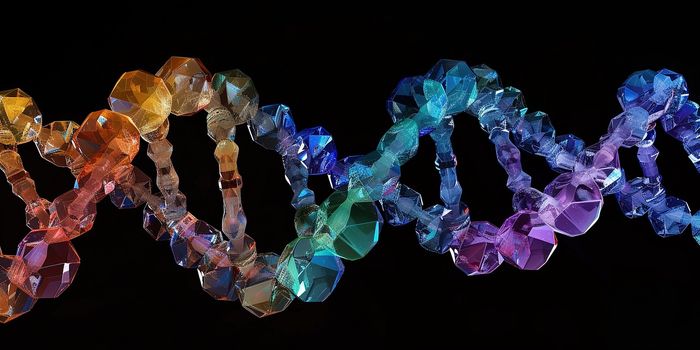A New Immunotherapy Approach for Advanced Colorectal Cancer
With estimates of over 150,000 new cases and over 50,000 deaths in 2022, colorectal cancer (CRC) remains one of the top five most common cancers in the United States. The complex nature of this cancer has created challenges in developing effective therapeutic options for CRC patients. Further, the minimal symptoms associated with CRC make early detection a challenge. While early-stage, localized cases reach five-year survival around 90% of the time, less than 20% of patients diagnosed with more advanced, distant CRC achieve five-year survival.
One subtype of CRC associated with dismal outcomes is mesenchymal colorectal cancer (mCRC). Immune cell infiltration into the tumors of mCRC patients is typically poor resulting in poor responses to immune-based therapies. Additionally, mCRCs have desmoplastic properties indicating strong, fibrous adhesions that form within the tumor and the presence of cells known as cancer-associated fibroblasts (CAFs). In CRC, CAFs promote tumor invasion, further indicating a poor prognosis. In part, a process known as epithelial-to-mesenchymal transition (EMT) accelerates the aggressive nature of mCRC. During EMT, epithelial cells convert to mesenchymal cells, accompanied by properties that enhance cancer promotion. An enzyme called atypical protein kinase C (aPKC) facilitates the EMT process in mCRC.
A recently published study in Cancer Cell highlights hyaluronan (HA) and its role in mCRC. The study considered several known characteristics of mCRC to uncover important information that will aid further research and therapeutic advances.
The study first demonstrates that mCRC tumors accumulate large amounts of HA. The researchers utilized the Cancer Genome Atlas (TCGA) to investigate associations between specific genes in the CRC genome. This analysis confirmed that patients with mCRC contained more genes associated with CAFs and lower levels of aPKC than tumors with less mesenchymal characteristics. Additionally, the researchers demonstrated that, in mCRC, deficiency of aPKC led to increased HA.
To evaluate HA's role, researchers administered pegylated hyaluronidase (PEGPH20) to mice with CRC. PEGPH20 works by breaking down HA within tumor cells, allowing the researchers to visualize how CRC tumors reacted without HA, even in an aPKC-deficient setting. In mice with aPKC deficiency, elimination of HA by PEGPH20 prevented desmoplastic appearance and slowed tumor growth. In addition, the depletion of HA also prevented the metastatic spread of CRC to the liver.
Finally, the study demonstrates that depletion of HA sensitizes murine CRC to immune checkpoint inhibitors, a promising type of immunotherapy. Treatment with PEGPH20 increased the expression of programmed death ligand 1 (PD-L1), a molecule found on immune cells that inhibits anti-tumor immune responses. Thus, interrupting the binding of PD-1 and PD-L1 can promote anti-tumor immunity, and this approach has shown significant efficacy in several types of cancer. The researchers demonstrate that treatment with a PD-L1 inhibitor only delays tumor growth in the mouse model in the absence of HA. Mechanistically, colorectal tumors can recruit immune cells following HA depletion, allowing the immunotherapeutic approach to work.
This complex study demonstrates that a combination approach involving depletion of HA before administration of immunotherapy could have significant benefits for patients with highly aggressive, hard-to-treat CRC. The Discovery of the mechanisms surrounding HA-driven cancer progression has the potential to advance this area of cancer research and therapeutic development.
Sources: CA, Nature, Gastroenterol, Int J Cancer, Front Med, Cancer Cell, Exp Molecul Path









